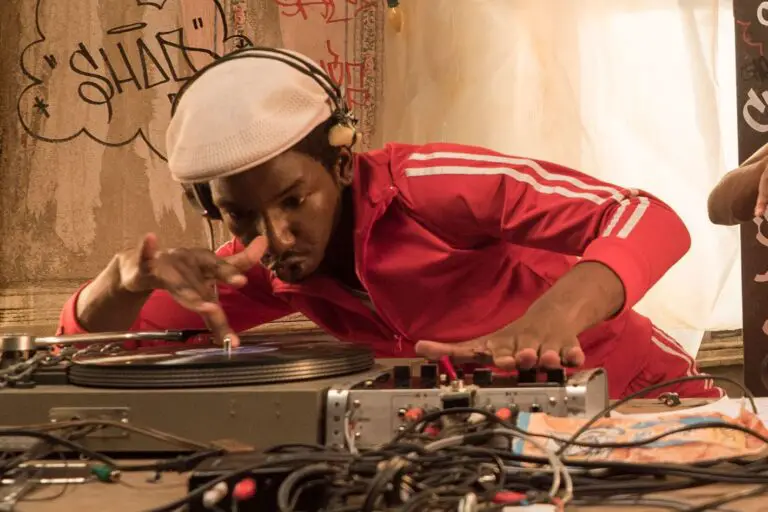At some point in our lives, we have all heard the classic hip hop refrain from Grandmaster Flash and the Furious Five, “Don’t push me ‘cause I’m close to the edge.” However, despite the funky bass line and infectious hook, “The Message” was written to give insight on the life of a young Grandmaster Melle Mel, who grew up in the Bronx during the ’60s and ‘70s, following the wake of the Civil Rights movement, an incredibly trying time for the impoverished black community. “The Message” has a place in history that is more than a reminder of the true roots of hip-hop, but rather a landmark of socially conscious rap. “The Message” was one of the first commercially successful rap songs providing heavy social commentary. At the time of its release, it stood out among other party tracks that were the hip-hop market at the time.
The intro delivered by Duke Bootee sets the scene, “It’s like a jungle sometimes it makes me wonder how I keep from going under.” Comparing life in the inner city Bronx to life in a literal jungle reiterates the hardships faced by the black community, struggling for survival and contemplating the will and self-determination that urge for survival takes. Then, on the verse is Melle Mel depicting the struggles of a poor black man who is on his last ounce of hope after repeating a cycle of despair desperate to escape.
Mel continues on the hook, “Don’t push me cause I’m close to the edge, I’m trying not to lose my head,” which encompasses the song’s central message: life in the inner city is hard and the stresses constantly build up. The hook almost sings as a warning to people unaware of the realities of street life, pleading people to not “push” you off the edge in a means to preserve your own mental sanity. Melle Mel’s verses continue to cover topics of poverty and homelessness due to mental illness with bars creating images of a “Crazy lady, livin’ in a bag eatin’ outta garbage pails” makes clear that Melle Mel was on the front lines of poverty in the 1970s. Mel also comments on the broken education system saying he “Got a bum education” and is under financial stress due to “double-digit inflation” which all feed into the power of the refrain.

Despite its release nearly 40 years ago, the song remains highly relevant in 2020’s social and political climate. The struggles detailed by Melle Mel are still issues faced by thousands who are stuck in the cycle of poverty perpetuated by systematic racism, un-equitable access, and crime. Many of the topics Mel rhymes about throughout “The Message” are the same themes present day artists such as Kendrick Lamar (AKA Cornrow Kenny) are bringing back to the focal point in the conscious hip hop movement.
There is an almost predictable reemergence of these themes of depression and poverty expressed by the black community brought to light by artists generationally. The consistency of lyrical themes present in the late 1970s mirroring those of present day billboard topping singles reiterates the notion that not much has changed. Black America is still trying to survive in the metaphorical jungle Bootee sang about.
Over the past ten years, we have seen artists such as Kendrick Lamar, as mentioned earlier, releasing songs in a similar vein to “The Message.” Most notably, his 2012 critically acclaimed, Good Kid M.A.A.D. City, concept album which followed the life of a young Kendrick throughout his upbringing in Compton, CA. Throughout the album’s track list, Kendrick raps about several similar themes such as his struggles with poverty, crime, and depression. Whether cited as an influence or not, Grandmaster Flash and the Furious Five’s “The Message” certainly paved the way for projects making social commentary accessible for the hip hop audience of today.
The next time you find yourself nodding your head to the beat of “The Message,” or saying “Don’t push me,” keep in mind the original focus of Grandmaster Flash and consider the blessing that music has the power to carry these messages through sound from generation to generation.


Comments are closed.